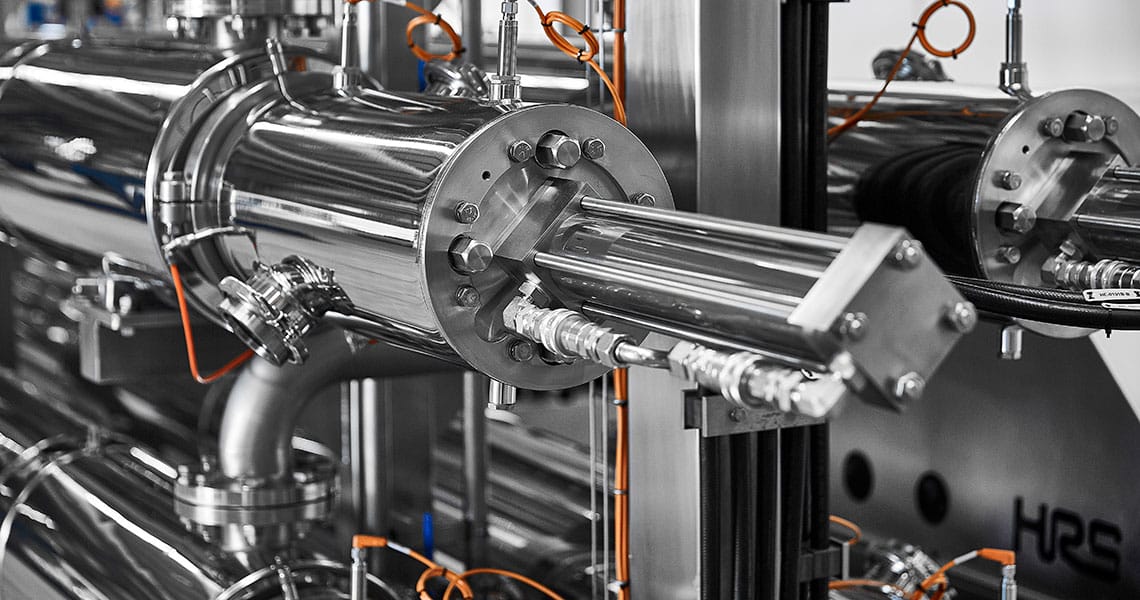Reciprocating Action Solves Tough Heat Exchange Challenges

Scraped surface heat exchangers (SSHEs) have been used for difficult heat transfer applications involving viscous fluids or where fouling is an issue, such as evaporation processes. The most common type, such as the HRS R Series, uses a rotating shaft with blades or augers which scrape the surface of the tube. However, the design is not optimal for every situation, and so HRS developed the Unicus Series of reciprocating scraped surface heat exchangers.
The HRS Unicus is specifically designed to provide the improved heat transfer of a traditional SSHE, but with a gentle action to preserve the quality and integrity of delicate food products such as cheese, yoghurt, ice cream, meat paste, and products containing whole pieces of fruits or vegetables.
There are also designs that are suitable for a range of wastewater and sludge applications including digestate pasteurisation and sludge evaporation. Over the years, a number of different scraper designs have been developed, meaning that every application can be handled in the most efficient yet gentle way possible.
The design uses a patented stainless-steel scraping mechanism which moved hydraulically back and forth within each interior tube. The movement minimises potential fouling by keeping the tube wall clean, and also creates turbulence within the material. Together, these actions increase the rate of heat transfer in the material, creating a highly efficient process which is ideal for viscous and high fouling materials.
The speed of the scrapers can be optimised for a particular product being processed, so that materials which are susceptible to shear stress or pressure damage can be handled delicately to prevent damage while still providing high levels of heat transfer.
Each Unicus SSHE consists of three elements: a hydraulic cylinder and power pack (although in smaller units a pneumatic cylinder can be supplied instead), a separation chamber to ensure hygiene and preserve product separation from the motor, and the heat exchanger itself. The heat exchanger consists of a number of tubes, each of which contains a stainless-steel rod to which the appropriate scraping elements are fitted. Using a range of food-safe materials including Teflon and PEEK (polyether ether ketone), these provide different internal geometry setups according to the application, such as 120° scrapers for large particulates and 360° scrapers for viscous fluids without particulates.
The Unicus Series is also fully scalable by increasing the shell diameter and adding more interior tubes from a single tube up to 80 in one shell. A key feature is the specially designed seals which separate the inner tube from the separation chamber, tailored to the product application. These seals prevent leakage of the product and ensure internal and external hygiene. A standard range of models for food processing provide heat transfer areas from 0.7 to 10 m², while larger models up to 120 m² can be made for specific uses.
Another area where the Unicus Series excels is in evaporation applications, where the prevention of fouling is particularly important. HRS has a specific version of the Unicus for use in evaporation units
where volume reduction of the material is essential. The scraping action keeps the heat transfer surfaces clean so that Unicus evaporators can concentrate materials to a level that is unattainable using traditional technologies. Unicus evaporators can be used in multi-effect setups or in combination with mechanical vapour recompression.